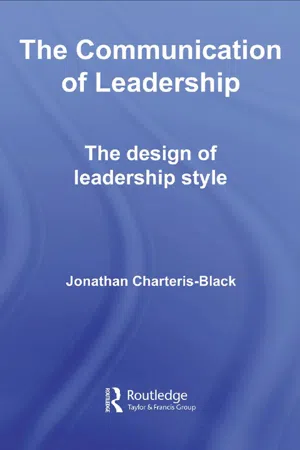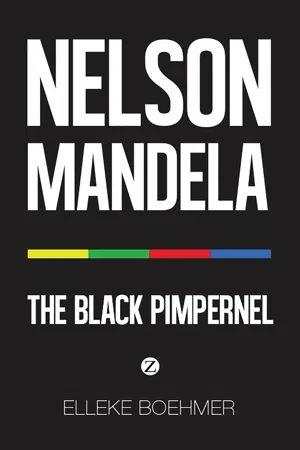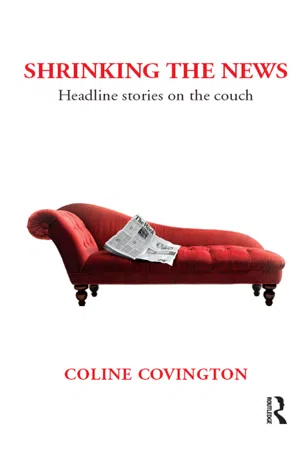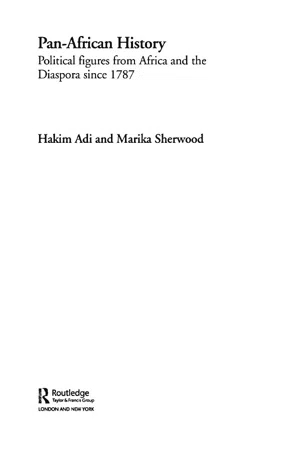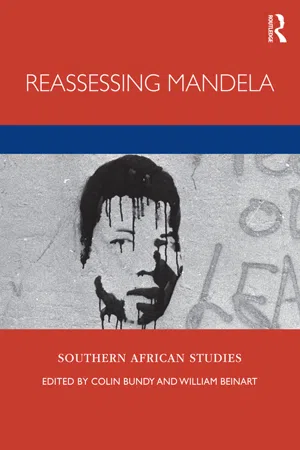Nelson Mandela
Nelson Mandela was a South African anti-apartheid revolutionary and political leader who served as the country's president from 1994 to 1999. He was a symbol of resistance against the oppressive apartheid regime and spent 27 years in prison for his activism. Mandela's autobiography, "Long Walk to Freedom," is a powerful literary work that chronicles his life and the struggle for equality in South Africa.
7 Key excerpts on "Nelson Mandela"
- eBook - ePub
On Literary Attachment in South Africa
Tough Love
- Michael Chapman(Author)
- 2021(Publication Date)
- Routledge(Publisher)
...9 The Power of … Nelson Mandela: A Literary Consideration DOI: 10.4324/9781003176237-10 A Long Walk During my lifetime I have dedicated myself to the struggle of the African people. I have fought against White domination and I have fought against Black domination. I have cherished the ideal of a democratic and free society in which all persons live together in harmony and with equal opportunities. It is an ideal which I hope to live for and to achieve. But if needs be, it is an ideal for which I am prepared to die. (1990b, p. 189) These are Nelson Mandela’s by now famous closing words as a defendant in the Rivonia trial (20 April 1964). Advocate for the defence, George Bizos, added the qualifier, ‘if needs be’, while the antitheses, the parallel structures, and the resonance of repetition link the power of Mandela’s words to an achievement in which the political figure rises above the politics of the day. One thinks of Lincoln, Churchill (who, we may recall, received a Nobel Prize in Literature), Nehru at Indian independence, Kennedy, Luther King, and, most recently, Nelson Mandela. Prior to the Rivonia trial Mandela, as the commander of the then military wing of the African National Congress (ANC), had stood trial in 1962 for incitement to strike and leaving the country without a passport. On that occasion his words from the dock turned his trial into an indictment of white domination, as encapsulated in the single phrase, ‘a Black man in a White court’ (1990a, p. 125). 1 Words continued to exercise the evolution of Mandela’s thought whether in the confinement of his cell, in discussion with other political prisoners, in surreptitious entries in calendars and notebooks, and, subject to prison regulations, in letters to his wife and children: Dear Winnie I have just read a book by our famous writer about the Karoo [Olive Schreiner’s The story of an African farm, 1883]. So dry it was in the desert that there was not a drop to quench my thirst...
- eBook - ePub
The Communication of Leadership
The Design of Leadership Style
- Jonathan Charteris-Black(Author)
- 2006(Publication Date)
- Routledge(Publisher)
...Uses such as these become rare in the latter part of the corpus as his legitimacy as leader of South Africa became increasingly grounded in the symbolism of himself as the embodiment of forgiveness, reconciliation, peace and national unity. It was ultimately because Mandela was able to become a symbol of the human rights of the oppressed – irrespective of whether they were repressed for racial, social or ethnic reasons – that his political cause gained legitimacy in the world outside of South Africa. Leadership and the media Mandela was keenly aware of the importance of the media in the dissemination of leadership. This is mainly because it had played an important part in publicising his imprisonment and spreading the anti-apartheid message around the world – he subsequently made himself available to the media because, under apartheid, the introduction of television was delayed until 1976 and then tightly controlled. Although the majority of newspapers were white-owned, he thanked the press on his release from prison for having not forgotten the ANC cause: In this regard, I wish to thank the media for its vigilance...
- eBook - ePub
- Elleke Boehmer(Author)
- 2013(Publication Date)
- Zed Books(Publisher)
...Already at his 1962 trial, ‘Madiba’ emphasised: ‘I have been only one in a large army of people.’ 3 Like Obama, Mandela has always been quick to acknowledge the support of those who sustained his career. As Mandela put it in an interview with African-American television host Oprah Winfrey: If there is any significant role that I played it was that of being a vessel through which the struggle was presented to the nation and the world. The struggle had to have a symbol for it to be effective. The great men and women of the struggle chose that I be that symbol. 4 Although it is true that Mandela’s good guidance and charisma represented important sources of inspiration for the making of post-apartheid South Africa, he was right to forswear authorship of the new South African democracy in this way. It was not merely the modesty of the loyal party man that motivated such statements, but his keen insight into the business of politics as well. With Mandela, it is manifestly the case that his leadership alone cannot explain the historical development in South Africa from apartheid to freedom. Inner radiance alone cannot account for why his icon should loom so large in the world’s imagination. The true picture – the real-life ‘Madiba magic’ – is more complicated than the story of individual specialness suggests, even though that radiance remains an important ingredient. Mandela’s leadership is based in a quality of character certainly, but this is combined with other key traits, not least his fine talents for negotiation and arbitration, his insights into his political opponents, and his career-long proximity to several outstanding colleagues and friends, themselves astute political minds, particularly Oliver Tambo, Walter Sisulu and Ahmed Kathrada. Then there is Mandela’s talent as a performer – his facility for finding the words and the attire to draw out, appeal to and convince an audience...
- eBook - ePub
Shrinking the News
Headline Stories on the Couch
- Coline Covington(Author)
- 2018(Publication Date)
- Routledge(Publisher)
...56 Why the world will weep for Nelson Mandela His impending death is especially sad not because he was perfect—but because he tried so hard “There is no passion to be found in playing small—in settling for a life that is less than the one you are capable of living.” These words of Nelson Mandela could not ring more true as he lies in hospital in Pretoria, gravely ill, and we look back on his life and legacy. Readmitted on Saturday with a recurring lung infection, the former president, now ninety-four, is reported to be in a serious but stable condition. The headlines over the weekend spoke of South Africa and the world “holding its breath”. There is a sense that we are about to witness an outpouring of grief the likes of which are rarely seen. Mandela’s impending death crystallises both his significance and our loss. Winner of the Nobel Peace Prize and long-term prisoner in his fight against South Africa’s apartheid, Mandela is not only thought of as Father (“Tata”) to black South Africans but as one of the outstanding heroes of the last century. Along with Martin Luther King and Mahatma Gandhi, he was an inspirational leader whose personal and political life appeared seamless. His life and work have come to represent the global struggle for human dignity, equality, and democracy. While the struggle is never-ending, Mandela reminds us that it is a struggle worth having. Mandela’s fight has had international repercussions. Many of the Britons who will mourn him will have memories of marching in London against apartheid, or boycotting the sale of South African oranges at Sainsbury’s. They will recall vividly the day in February 1990 when they sat glued to their television sets, awaiting his release from prison...
- eBook - ePub
Pan-African History
Political Figures from Africa and the Diaspora since 1787
- Hakim Adi, Marika Sherwood(Authors)
- 2003(Publication Date)
- Routledge(Publisher)
...Mandela remained President of South Africa until his retirement from public life in 1999. Immensely popular abroad during his many visits, he also managed to retain great personal popularity in South Africa despite growing criticism of his government, high levels of corruption and crime, and the slow pace of economic and social change. Nelson Mandela became something of an icon in the last quarter of the century, almost universally respected and admired for his personal sacrifices, qualities and principles rather than the policies of his government. HA Main publications No Easy Walk to Freedom, Ruth First (ed.), London, Heinemann, 1965. The Struggle is My Life, London, International Aid Fund for Southern Africa, 1978. Nelson Mandela Speaks: Forging a Democratic, Non-racial South Africa, New York, Pathfinder, 1993. Long Walk to Freedom, London, Abacus, 1994. In the Words of Nelson Mandela, Jennifer Crwys-Williams (ed.), London, Penguin, 1997. Further reading Benson, Mary, Nelson Mandela – The Man and the Movement, London, Penguin, 1994. Gregory, James, Goodbye, Bafana: Nelson Mandela My Prisoner, My Friend, London, Headline, 1995. Hagemann, Albrecht, Nelson Mandela, Johannesburg, Fontein Books, 1996. Meredith, Martin, Nelson Mandela – A Biography, London, Penguin, 1997. Schneider, Martin (ed.), Madiba: Nelson Rolihlahla Mandela: A Celebration, Johannesburg, Martin Schneider & Co., 1997. Sampson, Anthony, Mandela – The Authorised Biography, London, HarperCollins, 1999....
- eBook - ePub
- Colin Bundy, William Beinart, Colin Bundy, William Beinart(Authors)
- 2020(Publication Date)
- Routledge(Publisher)
...Freund, ‘The Shadow of Nelson Mandela, 1918–2013’, Review of African Political Economy, 41, 140 (2014), pp. 293, 295. 41 J. Carlin, Knowing Mandela (London, Atlantic, 2008), p. 108. 42 R. Barnard, ‘Introduction’, in Barnard (ed.), The Cambridge Companion, p. 3. 43 G. Cubitt, ‘Introduction’, in Cubitt and Warren (eds), Heroic Reputations, p. 21. In Joel Netshitenze’s obituary of Mandela, there is a striking phrase: ‘[h]e is the archetypal symbol of unfinished business’. 44 It provides an apt slogan for this special issue. Scholarly work on Mandela remains active and far from finished. 44 Netshitenze, ‘A Legacy Transcending Centuries’....
- eBook - ePub
Leadership in Colonial Africa
Disruption of Traditional Frameworks and Patterns
- B. Jallow(Author)
- 2014(Publication Date)
- Palgrave Macmillan(Publisher)
...Chapter 7 Leadership and Liberation: Southern African Reflections Chris Saunders In the aftermath of the death of Nelson Mandela on December 5, 2013, there was much discussion in South Africa and elsewhere of the quality of his leadership. Many contrasted it with that of the present-day leaders of Southern African countries. There was no doubt that Mandela was an exceptional leader, not least for emerging from almost 28 years of imprisonment without bitterness toward those who had imprisoned him and then rallying the nation behind him as the first president of a democratic South Africa. While his age was a factor, his decision to serve only one five-year term as president—the constitution provided for two—was widely seen as an example in the region to others not to cling on to power. Mandela’s leadership in this regard is in obvious stark contrast to that displayed by Robert Mugabe, who became leader of independent Zimbabwe in April 1980 and 34 years later, in February 2014, still in power, celebrated his ninetieth birthday in lavish style and with defiant rhetoric, in a country reduced to a shadow of its former self, with perhaps one third of its population having fled abroad. Such contrasting styles of leadership in Southern Africa provoke reflection on the kinds of leadership displayed, on the one hand, in the liberation struggles waged against colonialism and apartheid, and, on the other, after liberation movements came to power...

